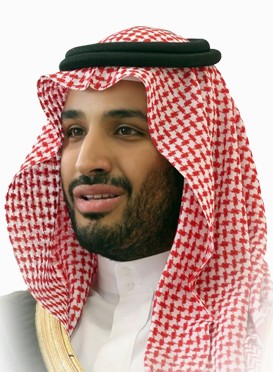 |
Last November Thomas Friedman, the New York Times columnist, travelled to Riyadh for an interview with the heir to the Saudi throne – an interview that has since proved memorable for all the wrong reasons.
Under a headline announcing "Saudi Arabia’s Arab Spring, at Last", Friedman wrote that "the most significant reform process underway anywhere in the Middle East today is in Saudi Arabia".
This transformation, he said, was being "led from the top down" by Mohammed bin Salman, recently appointed as Crown Prince at the age of 32. The prince's push for reform, Friedman continued, was giving Saudi youth a new pride in their country:
"Now they have a young leader who is driving religious and economic reform, who talks the language of high tech, and whose biggest sin may be that he wants to go too fast."
That, of course, was before exiled Saudi journalist Jamal Khashoggi walked into the kingdom's consulate in Istanbul to sort out some routine paperwork and ended up dead. After much prevarication the Saudi authorities now say he was murdered but are still insisting that it was a "rogue operation".
Khashoggi's killers, though, were trusted henchment of the Crown Prince who had flown in specially on two private jets. Nobody familiar with the way the kingdom works seriously believes the murder could have happened without Prince Mohammed's say-so.
Even before his interview with Friedman there were signs that wanting to "go too fast" was by no means the prince's biggest sin. He had already shown a propensity for kidnapping people and exorting money from them.
As part of his "reforms", several dozen prominent Saudis – billionaires and fellow princes – were lured to a luxury hotel in Riyadh and detained there until they agreed to hand over vast sums of money. While providing a welcome boost to the depleted royal coffers, this was presented as an anti-corruption drive – a kindly one that spared its targets the embarrassment of a trial by circumventing all legal procedures.
Around the same time, Lebanese prime minister Saad Hariri was summoned to Riyadh too, ostensibly for an urgent meeting with the Saudi king. Police surrounded his plane when it landed and Hariri was then forced to appear on Saudi television announcing his resignation. He withdrew it a month later after being allowed to return to Lebanon.
Unscathed by these earlier abductions, Prince Mohammed seems to have assumed that the silencing of one troublesome journalist at the consulate in Turkey would be a relatively trivial matter. According to a report in the Wall Street Journal, he "couldn’t understand why Mr Khashoggi’s disappearance was such a big deal".
That, in itself, is worrying – firstly because it treats murdering critics as a routine part of government business and secondly because it's a further example of the prince's recklessness in not considering the likely consequences of his decisions. A few precautionary enquiries would have told him that killing Khashoggi was bound to cause a furore: he had, after all, been writing for the Washington Post and was well-connected in the west.
Naturally, the Saudi authorities are hoping it will eventually blow over but they may be underestimating the seriousness of the problems it has caused.
The first and perhaps most important of these is that Prince Mohammed's one-man "reform" circus is now damaged goods. Before the Khashoggi affair, the kingdom's PR machine had ploughed much effort and money into promoting him as a progressive reformer – the new, friendly face of Saudi Arabia – but it's an image that can no longer be sustained with any credibility.
This is not just a matter for western governments to consider in any future dealings with the prince but for investors too. The kingdom (and the prince himself) sees foreign investment as the key to long-term prosperity. But who wants to invest in a country where you might at any moment become an involuntary guest at the Ritz-Carlton Hotel or visit a government office and never be seen again?
This is not the only damage caused by the prince's impetuousness. Three years ago, as defence minister, he plunged the kingdom into war in Yemen without an exit strategy. He expected it to be over in a few weeks but it's still going on with no end in sight and, aside from the humanitarian crisis in Yemen and evidence of Saudi war crimes, it's draining the kingdom's financial resources.
Then there was the cooked-up and often absurd quarrel with Qatar which, after a year and a half, is going nowhere.
The obvious solution would be to remove the wayward prince from office. King Salman, the ailing 82-year-old monarch, appointed him as Crown Prince and, in theory, could also un-appoint him. Whether that will happen is another matter – not least because Prince Mohammed is the king's favourite son. It's also doubtful whether there will be enough pressure from inside Saudi Arabia to stir the king into action. Even broaching the question is a perilous thing to do and Prince Mohammed himself has been very active in keeping tabs on possible sources of opposition.
Underlying all this is the flawed nature of the kingdom's top-down "reform" plan and the way it has been constructed around the personality of one man. A prime example was the long-overdue decision to let women drive. To ensure that no one else could claim the credit, women who had spent years campaigning for the right to drive were arrested and denounced as traitors.
Reforming Saudi Arabia is a gigantic undertaking and can only succeed if the public are directly engaged in it – something that the prince seems determined not to allow.
Taking all the credit is one thing, but Prince Mohammed isn't the type who willingly shoulders blame when his decisions go wrong. Even if the Khashoggi affair doesn't bring him down it may be only a matter of time before something else does.

 RSS Feed
RSS Feed
